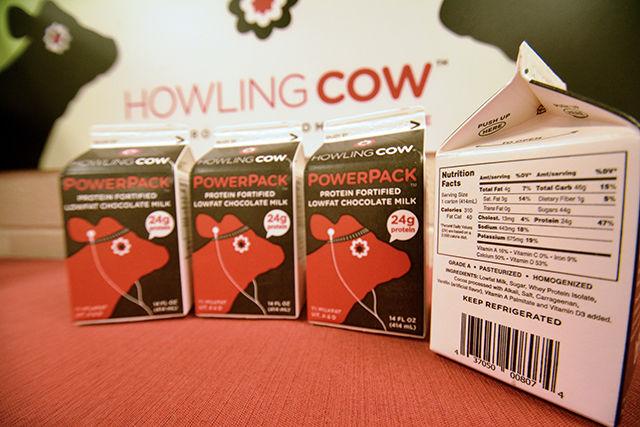The story of the development of Gatorade at the University of Florida for athletes has been made famous. NC State’s Howling Cow worked with NC State Athletics to make the Power Pack protein milk, thus creating its own story of innovation.
Power Pack was developed by Carl Hollifield, the pilot plant business manager of the Department of Food, Bioprocessing and Nutrition Sciences in conjunction with the NC State Athletics and University Dining. The idea came about when Hollifield noticed a void in the protein drink market.
“We did some general market research off campus and noticed that the campus community mostly had things like muscle milk and other non-water-based protein beverages,” Hollifield said.
According to Hollifield, it’s the only conventional pasteurized, milk-based product on campus, meaning that it’s not ultra-pasteurized and not a water-based beverage.
Hollifield met with the nutritionist at University Dining, Lisa Eberhart, who thought the protein drink was a great idea for NC State. A student team within food science took the responsibility of bringing a formula to market. After testing out prototypes at on-campus C-Stores with students, the team talked to NC State Athletics to formulate a drink for athlete recovery.
“We’re lucky to be a campus with our own dairy, so we use fresh milk,” said Diana Nguyen, director of sports nutrition. Nguyen’s roles include ordering products and food for athletes, coordinating with sports medicine, and strength and conditioning.
Power Pack is comprised of a low-fat chocolate milk base with added whey protein isolate called Bipro, granulated pure cane sugar and cocoa. To be a viable option for student athletes, the protein drink stays within the NCAA-mandated 30 percent protein limit.
“Basically we take raw milk from the farm and pasteurize it, harmonize it, and then we add the ingredients,” Hollifield said.
Generally, known benefits are muscle-building whey protein which contains amino acids that are crucial for synthesis of muscle after body building or extensive activity. Although a healthy choice, Power Pack isn’t recommended for everyone. It could be good for a post work out for someone who was working out intensely, regularly or in a club sport, but according to Hollifield, it’s not something you want to casually drink.
“It’s a milk product, so it’s going to be good for you,” Nguyen said. “It’s not going to be overloaded with a bunch of sugars, but if you’re just a weekend warrior, you really don’t need it for a recovery drink.”
Power Pack is geared toward student athletes or health-conscious students who go to the gym.
“Many of our athletes love it,” Nguyen said. “It’s not just for football; it’s not just for basketball. I don’t recommend it to all my athletes, but for many of them, it is a good option for recovery. So, we’ll continue to order it all year long.”
Although successful with NC State Athletics, Power Pack hasn’t been marketed a great deal toward non-athletes. Power Pack can be found in C-Stores, Talley Market and the athletics facilities.








